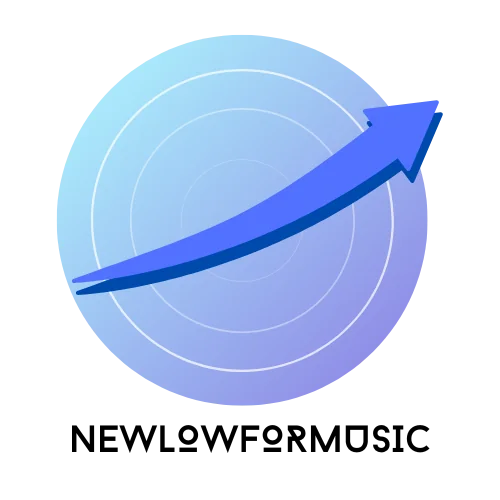Table of Contents
ToggleIn a world where career paths often feel like a game of Twister, career development books are the trusty guide that helps navigate the colorful chaos. These books don’t just sit pretty on the shelf; they’re packed with insights that can turn a job from a “meh” experience into a thrilling adventure. Whether someone’s climbing the corporate ladder or making a daring leap into entrepreneurship, there’s a book out there waiting to be their secret weapon.
Imagine flipping through pages filled with wisdom, strategies, and maybe even a few chuckles along the way. With the right book in hand, anyone can transform their career trajectory faster than they can say “promotion.” So, why not dive into the world of career development literature and discover the keys to unlocking potential? After all, who wouldn’t want to turn their 9-to-5 into a 10-out-of-10?
What Are Career Development Books?
Career development books serve as key resources for individuals seeking to advance their professional journeys. These texts encompass a variety of topics, including goal setting, networking strategies, and personal branding. A range of authors offer insights drawn from their experiences, making the content relevant for both corporate employees and aspiring entrepreneurs.
Readers often find practical tips that enhance their skill sets. Many books include step-by-step frameworks designed to help individuals navigate obstacles in their careers. Specific examples illustrate how successful professionals overcame challenges, providing relatable scenarios.
Resources within this genre can cover diverse aspects such as emotional intelligence, leadership skills, and effective communication. Key themes often emphasize the importance of lifelong learning and the value of adapting to changes in the job market. Different formats, such as workbooks and interactive guides, further engage readers and support effective application of concepts.
Mentorship and coaching are also frequent topics, as relationships play a significant role in professional growth. Many authors stress the impact of authentic connections in expanding one’s opportunities. This focus encourages individuals to actively seek out mentors and build strong professional networks.
Ultimately, career development books empower individuals to take control of their careers. By providing actionable advice and relatable anecdotes, they can influence career trajectories and enhance job satisfaction. These resources form a crucial component of a proactive approach to professional advancement.
Benefits of Reading Career Development Books

Reading career development books offers various advantages for individuals looking to enhance their professional lives. These resources serve not only as guides but also as sources of inspiration and motivation.
Personal Growth
Career development books significantly contribute to personal growth. They encourage self-reflection, helping individuals understand their strengths and weaknesses. With insights from experienced professionals, readers explore new perspectives on their career goals. This exploration fosters resilience and adaptability, essential skills in today’s dynamic job market. Individuals often discover the importance of developing a growth mindset, which promotes continuous learning and improvement. Engaging with narratives of success and failure from others can inspire readers to take calculated risks and embrace challenges that lead to personal fulfillment.
Skill Enhancement
Reading these books facilitates skill enhancement by providing targeted strategies applicable to various industries. Essential skills covered include communication, leadership, and time management. Each book typically includes practical exercises and real-world examples, allowing readers to practice new techniques. Understanding the importance of emotional intelligence is another key takeaway. By improving interpersonal skills, individuals create better workplace relationships. Additionally, many career development texts offer insights into the latest industry trends, equipping readers with knowledge vital for staying competitive. Readers often leave with actionable skills that can directly impact their career trajectories.
Top Career Development Books to Read
Career development books offer invaluable insights for enhancing professional growth. They provide readers with essential strategies to navigate their career paths effectively.
Classic Selections
“How to Win Friends and Influence People” by Dale Carnegie remains a foundational text in building relationships. This book emphasizes interpersonal skills, which are crucial in any professional setting. “The 7 Habits of Highly Effective People” by Stephen R. Covey teaches principles for personal and professional effectiveness. It guides readers through developing habits that foster success. Another classic, “What Color Is Your Parachute?” by Richard N. Bolles, serves as a practical guide for job seekers, focusing on self-assessment and the job search process. Classic selections like these continue to shape career development by providing timeless wisdom.
Contemporary Favorites
“Mindset: The New Psychology of Success” by Carol S. Dweck explores the concept of growth mindset, encouraging adaptability in a changing job market. “Dare to Lead” by Brené Brown addresses leadership with an emphasis on vulnerability and authenticity. It teaches readers the importance of emotional intelligence in leadership roles. “Deep Work” by Cal Newport highlights the value of focused work and strategies for achieving productivity in a distracted world. Contemporary favorites cater to modern professionals, addressing current challenges while offering actionable strategies for career advancement.
How to Choose the Right Career Development Book
Selecting the right career development book involves several key considerations. Focus on your specific goals and needs, as these guide the selection process. Evaluate the subject matter relevance; books covering topics like networking, leadership, or emotional intelligence can meet distinct requirements.
Review the author’s credentials and experience. Successful authors often share real-world insights that resonate with readers. Compare ratings and reviews to gauge how others perceive the book’s usefulness and effectiveness.
Analyze the book’s format and style. Some prefer interactive workbooks, while others appreciate straightforward narrative formats. Engage with a preview whenever possible; sometimes the introduction or a sample chapter highlights whether a book aligns with personal preferences.
Explore publications that address contemporary challenges. Current texts may focus on evolving workplace dynamics or emerging trends. Seek books that incorporate actionable strategies and real-life case studies, offering practical tools beneficial for skill enhancement.
Identify any program or framework the book proposes. Systems that outline clear steps or processes simplify the learning journey. Opt for books that emphasize continuous growth; they encourage long-term success in a competitive job market.
Consider recommendations from trusted mentors or colleagues. Their insights can direct individuals toward high-quality resources. Make an informed decision by setting aside personal biases and concentrating on relevant factors to ensure the chosen book effectively contributes to career growth.
Tips for Maximizing Your Reading Experience
Engage actively with the content of career development books. Highlight key concepts and take notes to reinforce understanding. Practicing this approach helps readers retain crucial information and apply it later in their careers.
Schedule reading sessions to create consistency. This establishes a routine that fosters deeper comprehension over time. Allocating specific times will also support sustained focus, enhancing the reading experience.
Connect insights from multiple books. Comparing different perspectives enriches understanding and uncovers broader themes in career development literature. Drawing connections between texts can provide a clearer picture of professional growth and strategies.
Discuss findings with peers or mentors. Talking about key takeaways encourages reflection and promotes accountability in growth efforts. Engaging in discussions may also uncover additional insights or strategies that enhance personal development.
Set measurable goals for applying concepts learned. Identifying specific actions to implement the advice from books aids in tracking progress. Such clarity transforms abstract ideas into practical steps for career advancement.
Explore supplementary materials such as podcasts or online courses. These resources complement reading and provide varied insights into career development topics. Leveraging different formats supports diverse learning preferences and reinforces knowledge gained from books.
Revisit key sections or chapters. This practice strengthens understanding of complex ideas or strategies. Revisiting content also serves as a reminder of previously learned principles, reinforcing their importance.
Cultivate a network of fellow readers. Sharing experiences and recommendations from career development books can broaden access to valuable resources. A community of like-minded individuals fosters motivation and encourages a commitment to ongoing learning.
Career development books are invaluable resources for anyone looking to enhance their professional journey. They offer insights that not only inspire but also equip individuals with the skills needed to navigate today’s dynamic job market. By engaging with these texts, readers can foster a growth mindset and develop essential competencies that lead to career advancement.
Exploring a variety of books allows individuals to discover strategies tailored to their unique goals. Whether through classic literature or contemporary guides, each book provides a different perspective on overcoming challenges and achieving success. By actively applying the lessons learned, readers can take meaningful steps toward fulfilling their career aspirations.







